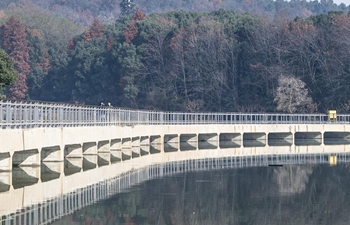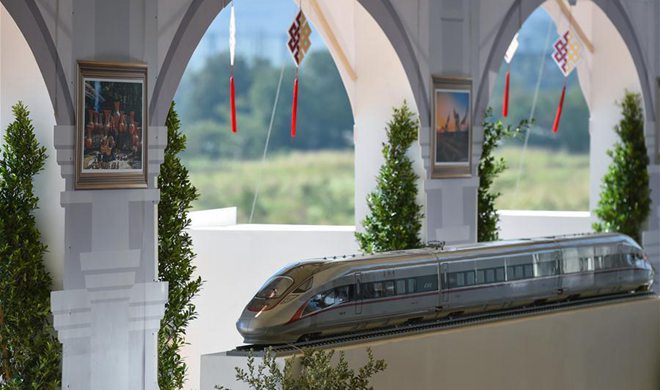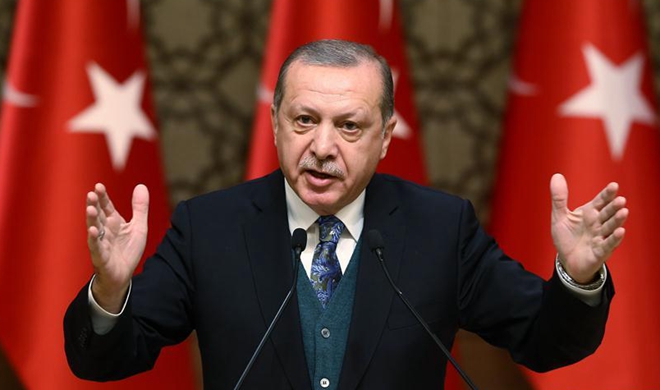by Matthew Rusling
WASHINGTON, Dec. 21 (Xinhua) -- U.S. President Donald Trump has been able to pass a major tax bill with relative ease, but experts say his next legislative battle -- likely a massive infrastructure bill -- won't be so easy.
The GOP-led Congress this week passed a sweeping tax overhaul worth 1.5 trillion U.S. dollars, one that cuts taxes for corporations, small businesses and individuals.
The bill amounts to the biggest tax revamp in three decades, and stands as the businessman-turned-politician's biggest legislative achievement. After nearly a year in office, the tax bill represents a much-needed win after Trump failed in his efforts to pass a major healthcare bill.
But experts said this triumph may be short-lived, as it remains unknown whether the president will be able to make good on myriad other campaign promises. While Trump was able to unify the GOP on the tax bill, he will likely have to tread muddy waters in his next legislative battle, which is likely to be infrastructure.
"The next legislation will be difficult. No one can figure out how to pay for infrastructure, there is little support for entitlement reform, and there will be a huge budget fight in January," Gregory R. Valliere, chief strategist at Horizon Investments, told Xinhua.
"To complicate matters for Trump, many Republicans may abandon him once they get what they want -- tax cuts," Valliere said.
Indeed, Trump has in recent months had an ongoing and very public spat with key members of his own party, including 2008 presidential candidate and current Senator John McCain. The war of words grew personal on a number of occasions, with both men making stinging jabs at each other through social media.
That calls into question how and whether Trump can rally the GOP-led Congress on issues that may be much more controversial than tax reform.
Dan Mahaffee, senior vice president and director of policy at the Center for the Study of the Presidency and Congress, told Xinhua that there will be some challenge in coordinating the next course of action for the GOP, as there is the need to keep the government open and fund or authorize key programs.
FOCUSING ON INFRASTRUCTURE SPENDING
Longer-term attention is divided between action on GOP House Speaker Paul Ryan's next priority, which is welfare reform, and what President Trump has been focused on, infrastructure spending.
Trump was elected by a mostly white, working class population fed up by a number of problems they see plaguing the United States -- from illegal immigrants they believe are taking their jobs, to high unemployment in rural areas and a sense of being forgotten by Washington.
Indeed, while the official jobless rate is low, the rate masks a number of economic realities. For example, a trained engineer without a job is considered employed for that week if he spends a Friday afternoon cutting his neighbor's grass for 20 U.S. dollars -- about the price of a moderate dinner out for one person.
Moreover, the unemployment rate does not take into consideration those who have given up seeking full-time work out of sheer frustration at their dim prospects. Nor does it consider that many of the jobs created in recent years are low-paying ones.
Major cities such as Washington DC, however, are exceptions, as wages there are high and job opportunities are plentiful.
Experts said a massive infrastructure building plan could boost the economy and solve a number of the nation's economic problems.
Alan Viard, a resident scholar at the American Enterprise Institute, noted that some reports indicate that the administration' s next major proposal will be an infrastructure program.
"President Trump is not likely to have it as easy on that proposal because it will take 60 votes to pass it in the Senate, rather than the 50 needed to pass the tax bill," he told Xinhua.
There is also significant disagreement within and between the two parties about what kind of infrastructure should be built and how it should be financed, he added.
Trump is expected to release the details of his massive infrastructure plan in January.
Trump vowed while on the campaign trail that he would propose a 1-trillion-U.S.-dollar infrastructure overhaul plan during his first three months in office, but the plan got held up amid efforts to pass a healthcare bill and this week's tax revamp.
Trump is expected to release a detailed plan for upgrading airports, roads, bridges infrastructure ahead of his State of the Union address, which is slated for Jan. 30, according to a Bloomberg report.

















